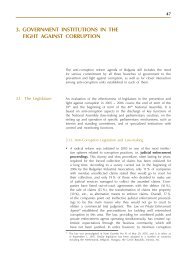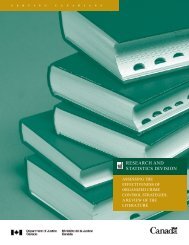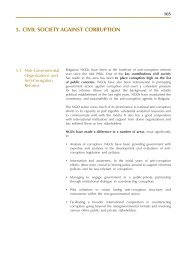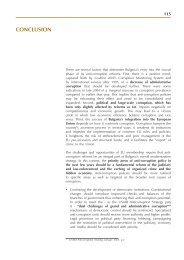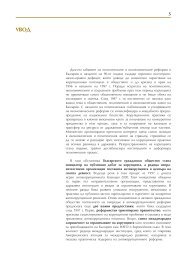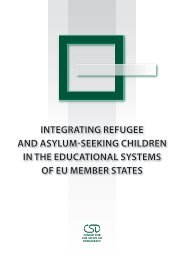National Threat Assessment 2008. Organised Crime - Politie
National Threat Assessment 2008. Organised Crime - Politie
National Threat Assessment 2008. Organised Crime - Politie
You also want an ePaper? Increase the reach of your titles
YUMPU automatically turns print PDFs into web optimized ePapers that Google loves.
Harm to or threatening the natural environment<br />
or the living environment<br />
One possible consequence of criminal investments in property mentioned<br />
several times by respondents and in the literature is (further) degeneration or<br />
dilapidation of urban districts as a result of neglect and/or criminal exploitation.<br />
The properties in which the criminals invest could, for example, be used for<br />
illegal residence in the Netherlands, for which considerable amounts are<br />
sometimes paid (‘rack renting’). It should be noted that this practice mainly<br />
happens in districts that have a certain level of deprivation or dilapidation. In<br />
these cases the criminal investments in property may also attract crime, as these<br />
districts are good locations for (other) suspect (criminal) entrepreneurs to set up<br />
their business. More unlawfully obtained properties also offer more possibilities<br />
for money laundering. For example, if criminals buy buildings in the Amsterdam<br />
red-light district, they will be able to launder their money and then to use it for<br />
illegal business. Criminal ownership of property and mala fide practices involving<br />
property can be intertwined with other illegal phenomena such as illegal<br />
residence, illegal employment, human trafficking and human smuggling.<br />
Disruption of socio-economic relations<br />
Investment of (large amounts of) money in the property sector by criminals affects<br />
other investors in the property sector. It disrupts market prices and it creates unfair<br />
competition. Due to their comfortable financial position, criminals are often able<br />
to buy buildings under better conditions (cash payment, no mortgage, some of<br />
the payment ‘undeclared’), which also forces prices up. Criminal use of financial<br />
service providers can result in unfair competition on the service provider market if<br />
they are paid without the payment being declared or if – due to the suspect nature<br />
of the situation – they can ask higher fees for their services.<br />
Criminal entrepreneurs involved in money laundering in the property sector<br />
mix with bona fide people in the property business. Positions of economic<br />
power enable criminal entrepreneurs to manipulate prices, use property for<br />
their own criminal purposes, give their criminal activities a legal front and<br />
simplify the laundering of unlawfully obtained funds. Money laundering using<br />
property always requires help from a third party, such as lawyers, civil-law<br />
notaries, tax experts and sometimes corrupt public servants. They form the<br />
link between criminal circles and legitimate society.<br />
Harming of national interests and international relations<br />
According to a few respondents, the idea has emerged internationally that<br />
unlawfully obtained funds can be easily invested in the Netherlands. This<br />
damages the Netherlands’ reputation, which in turn affects international<br />
economic and political relations.<br />
chapter 3 – Fraud and money laundering<br />
135



